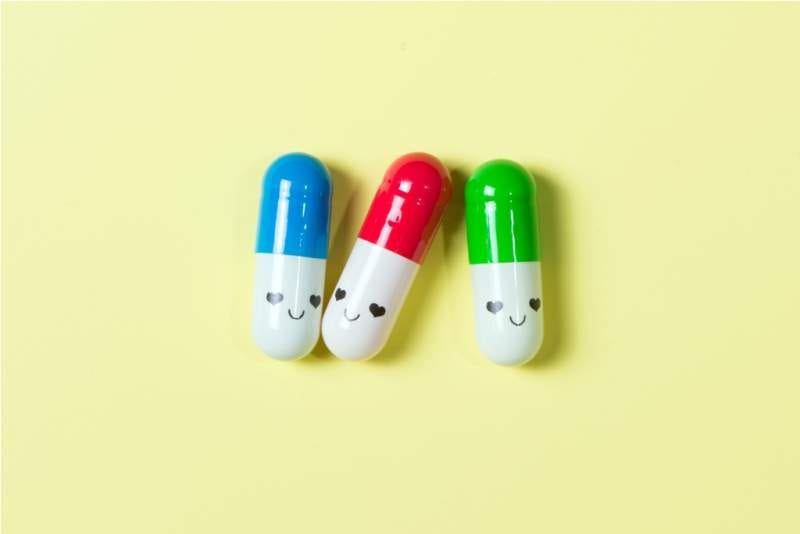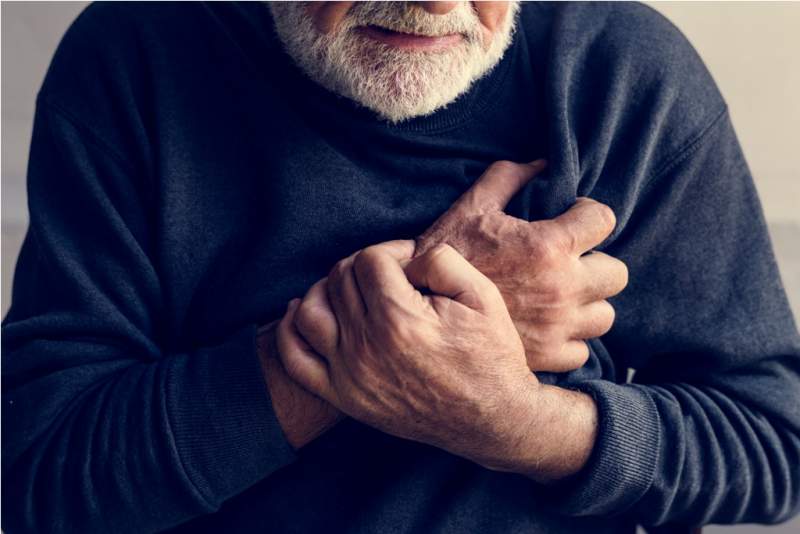How much do we really know about the health of our hearts? Let’s face it; in the busy world of an average Joe, health isn’t really the number one concern. There are more important priorities such as work, school, and family.
You might think that since you’re young, why bother knowing about something that probably won’t matter until 50 years from now, right? This, however, shouldn’t be the mentality.
Many of us tend to have preconceived ideas regarding physical health and the heart specifically. Little do we know that heart disease can strike at the most unexpected place and time. Let’s shatter the myths of heart disease and take a closer look at 10 of the most common fabricated ideas regarding cardiovascular health.
1. High Blood Pressure Is Okay If You’re Old
 Yes, it’s true that blood pressure rises with age. But that’s not necessarily a good thing. The reason why older people tend to have higher blood pressure is that they have stiffer artery walls which force the heart to pump harder.
Yes, it’s true that blood pressure rises with age. But that’s not necessarily a good thing. The reason why older people tend to have higher blood pressure is that they have stiffer artery walls which force the heart to pump harder.
As you can imagine, this will cause damage over time as the heart muscle tries harder and harder to pump blood for the entire body. This is the reason why having high blood pressure is dangerous no matter how old you are.
2. Eating Fat Isn’t Good If You Have Heart Disease
 There’s a theory floating around that if you have heart disease, you shouldn’t eat any fat. While this seems like it makes sense at first, it’s not completely correct.
There’s a theory floating around that if you have heart disease, you shouldn’t eat any fat. While this seems like it makes sense at first, it’s not completely correct.
First off, saturated fats like hydrogenated and trans fats should have been a low-percentage addition to your diet. But there are other types of good fat like the unsaturated fats found in vegetable oils and salmon. Eating these types of fats are actually good for your health and can even lower the risk of heart disease.
3. You Can’t Reduce Heart Disease If You’re A Long-Time Smoker
 Smoking is bad for your health, period. The moment you kick the habit, every day thereafter will only improve your health. The sooner a smoker quits, the faster that the risk of cancer, heart and lung disease, and other conditions are lessened. One year after quitting smoking, the risk of coronary heart disease is cut in half.
Smoking is bad for your health, period. The moment you kick the habit, every day thereafter will only improve your health. The sooner a smoker quits, the faster that the risk of cancer, heart and lung disease, and other conditions are lessened. One year after quitting smoking, the risk of coronary heart disease is cut in half.
Myth busted!
4. “I’m Hopeless Because Heart Disease Runs in The Family”
 While it’s true that people with a history of heart disease in the family are at a higher risk, that doesn’t mean that precaution can’t be taken or that it’s impossible to prevent it. You can effectively lower the risks by eating healthy foods, exercising, managing blood pressure, and cutting out unhealthy vices such as smoking.
While it’s true that people with a history of heart disease in the family are at a higher risk, that doesn’t mean that precaution can’t be taken or that it’s impossible to prevent it. You can effectively lower the risks by eating healthy foods, exercising, managing blood pressure, and cutting out unhealthy vices such as smoking.
Some people like to use this as a form of procrastination to basically explain away the fact that they’re too lazy to change their lifestyle. Be healthy, anticipate, and you’ll feel stronger and live happier.
5. Taking Statins Allows You to Eat Whatever You Want
 Statins are a type of drug that lower the cholesterol level in the body. A popular notion is that by taking the drug, you become instantly free to eat as many cholesterol-heavy foods as you want. Let us be the first to reveal how false this is and explain why.
Statins are a type of drug that lower the cholesterol level in the body. A popular notion is that by taking the drug, you become instantly free to eat as many cholesterol-heavy foods as you want. Let us be the first to reveal how false this is and explain why.
Cholesterol in the body comes from two sources: the liver and from certain foods. The function of statins is to reduce the amount of cholesterol produced by the liver. What this means is that if you take a statin and then eat a gigantic hamburger, the drug will lose its efficacy and your body might even end up having more cholesterol than was reduced in your liver by the statin.
6. Small Heart Attacks Are Nothing to Worry About
 Silent heart attacks can happen without a person even realizing it. They occur when blood flow to the heart becomes temporarily blocked. There aren’t usually any obvious symptoms. While having silent heart attacks doesn’t necessarily mean you need to worry, it can be an underlying indication of serious heart disease.
Silent heart attacks can happen without a person even realizing it. They occur when blood flow to the heart becomes temporarily blocked. There aren’t usually any obvious symptoms. While having silent heart attacks doesn’t necessarily mean you need to worry, it can be an underlying indication of serious heart disease.
You can minimize the risk of heart attacks by keeping your weight in check and being conscious of your diet. Visit your doctor regularly to have a checkup and make sure no secondary illnesses are present. You could also get tests like a nuclear stress test done for good measure.
7. Mostly Only Men Have Heart Attacks
 A myth was propagated more than a decade ago that heart attacks happen more frequently in men than they do in women. The story goes that breast cancer is for women and heart disease is for men. This is false and the truth is actually much closer to the opposite.
A myth was propagated more than a decade ago that heart attacks happen more frequently in men than they do in women. The story goes that breast cancer is for women and heart disease is for men. This is false and the truth is actually much closer to the opposite.
According to statistics provided by the National Center for Biotechnology Information (NCBI), cardiovascular disease has claimed more female lives than males since 1984.
The key to having a healthy heart and reducing the risk of cardiac disease is related to lifestyle choices. The American Heart Association recommends getting a health screening once every 2 years if your blood pressure is less than 120/80 mmHg.
8. You Can’t Exercise If You Have Heart Disease
 Some people seem to think that having heart disease means you have to sit in a wheelchair and watch game shows on TV until the day you die. This isn’t true at all.
Some people seem to think that having heart disease means you have to sit in a wheelchair and watch game shows on TV until the day you die. This isn’t true at all.
Exercising when you have heart disease is important because it makes your heart muscle stronger and lowers blood pressure and cholesterol levels. Being inactive can actually have a negative effect on your health and lead to a decline in your overall physical condition.
Walking is the easiest and most non-strenuous form of exercise there is. A good walk once a day will do wonders for your health, but feel free to consult a doctor if you’d like to learn about other types of exercise suitable for you.
9. “Heart Failure Means the Heart Stops Beating”
 But that’s not actually what it means. Heart failure is what happens when the heart begins to have difficulty pumping blood. In other words, it fails to operate at maximum efficiency. This typically causes shortness of breath and coughing. If the heart stops beating, that’s when you go into cardiac arrest. If not treated within minutes – the result is death.
But that’s not actually what it means. Heart failure is what happens when the heart begins to have difficulty pumping blood. In other words, it fails to operate at maximum efficiency. This typically causes shortness of breath and coughing. If the heart stops beating, that’s when you go into cardiac arrest. If not treated within minutes – the result is death.
On a more cheerful note though, about 45 percent of people who had experienced cardiac arrest outside hospitals were able to survive with the help of CPR from bystanders.
10. Vitamins and Supplements Can Lower Risk of Heart Disease
 While vitamins E, C, and beta-carotene do play a minor role in controlling heart disease, there is no scientific evidence available to justify taking them as an acceptable prevention method. Since the body more readily accepts vitamins that are gained through food, simply avoid supplements and start preparing healthy meals for yourself.
While vitamins E, C, and beta-carotene do play a minor role in controlling heart disease, there is no scientific evidence available to justify taking them as an acceptable prevention method. Since the body more readily accepts vitamins that are gained through food, simply avoid supplements and start preparing healthy meals for yourself.
As minor of a factor as it is, at least you’ll be doing everything you can to solve the problem and in a correct manner.
